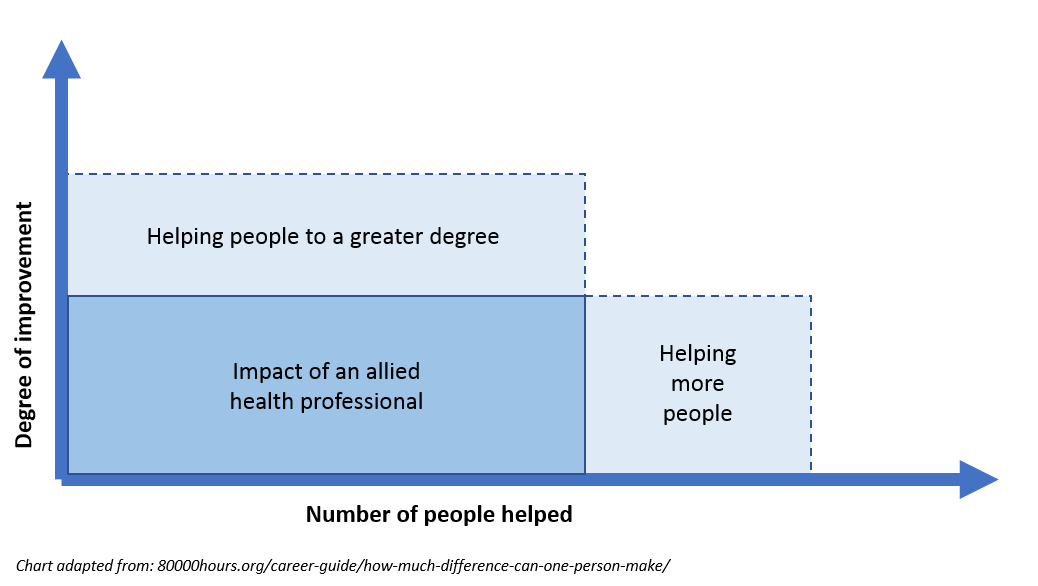Many people aspire to make a meaningful impact through their careers. For allied health professionals, this impact is often more profound than they realize. Each day, they play a crucial role in enhancing healthcare in the United States.
The Ripple Effect of Day-to-Day Work in Allied Healthcare
Allied health professionals encompass a diverse group of careers, including medical assistants, phlebotomists, dental assistants, and those in medical lab science. Each day, their duties impact patient care and health. A medical assistant in a doctor's office may manage patient intake, prepare patients for exams, and conduct initial assessments. These tasks, though routine, lay the groundwork for effective healthcare delivery.
In phlebotomy, the act of drawing blood is vital for laboratory testing that informs diagnoses and treatment plans. Every blood draw, every specimen collected, and every test conducted plays a crucial role in patient health. The Bureau of Labor Statistics projects significant growth in employment within allied healthcare. This trend underscores the increasing importance of these roles to maintain and improve public health.
The day-to-day work of allied health professionals often feels mundane, but it has far-reaching effects. By providing quality care and testing, they contribute to better health outcomes, which ripple throughout communities. When a patient receives timely and effective care, it helps their recovery. It also positively affects their family, friends, and community.
Every Action Counts
Every single action taken by allied health professionals matters. They serve as the first point of contact for patients. This contact builds trust and ensures that patients feel comfortable discussing their health concerns. By providing care, allied health professionals foster an environment that encourages patients to seek necessary medical attention, thus contributing to overall public health.
With the support of their American Medical Technologists (AMT) certification, allied health professionals show their commitment to quality. This includes thorough training programs and passing an exam to ensure they have the knowledge and skills for their roles. Credentials like Registered Medical Assistant (RMA) and Medical Laboratory Technician (MLT) indicate a high level of skill and professionalism.

The Importance of Education and Training
Education and training play a vital role in preparing allied health professionals for their day-to-day work. Many professionals begin their careers through entry-level training programs that provide foundational knowledge in anatomy and physiology, laboratory techniques, and patient care procedures. These programs equip them with the skills for success in their fields.
Continuing education is important in maintaining and advancing careers in allied health. Engaging in ongoing training, professionals ensure that they stay updated on the latest trends in medical technology and practices. This commitment to lifelong learning enhances their ability to provide high-quality care and adapt to evolving standards.
AMT actively supports its members by offering various resources for education and training. This includes access to professional development courses tailored to allied health careers. This helps active members stay informed and competitive in a rapidly changing healthcare landscape.
The Strength of Allied Health: A Collective Impact
The support of allied health professionals extends beyond individual roles; they are part of a larger, connected healthcare system. Every allied health professional plays an important role in providing thorough care to patients. When allied health professionals collaborate, they create a powerful network that enhances healthcare delivery and improves patient outcomes.
This collective effort is important in settings where professionals must work together to deliver quality care. Medical assistants work closely with phlebotomists to ensure they collect blood samples and process them promptly. This teamwork benefits patients, leading to faster diagnoses and treatment plans.
Being an active member of AMT connects allied health professionals with a community committed to advancing healthcare standards. Networking options and shared resources enable members to learn from one another and exchange best practices. This teamwork enhances their impact across the nation.
Demonstrating Pride in Your Certification
As an AMT-certified professional, displaying your certification shows your commitment to excellence in allied healthcare. Here are some effective methods to demonstrate pride in your credentials:
1. List Your AMT Certification. Add your AMT certification, such as RMA or MLT, to your email signature to demonstrate your commitment. This also enhances your professional profiles. This practice effectively highlights your dedication to high standards in allied healthcare.
2. Display AMT's Logo. Wearing AMT apparel or accessories serves as a visible reminder of your dedication to your profession. This visibility fosters a sense of community and connection among allied health professionals.
3. Display Your Certification. Many AMT members proudly display their AMT certificate in their work spaces. This shows their commitment to quality and competency in allied health careers. This practice not only reinforces personal pride but also inspires colleagues to pursue their own certifications and professional development.
Building a Supportive Allied Health Community
AMT provides useful platforms for professionals to connect, learn, and share knowledge. Joining AMT programs, events, and training fosters a sense of support within the allied health community. Partnering with others focused on improving health outcomes increases your impact as a health professional.
Moving Forward with AMT
As you progress in your career as an allied health professional, remember the importance of your day-to-day work. Every interaction with a patient, test you perform, and piece of data you collect helps create a healthier society. The roles played by medical assistants, phlebotomists, dental assistants and other allied health professionals are crucial in shaping patient care experiences.
In conclusion, the impact of allied health professionals extends far beyond individual patient interactions. Your dedication to high standards, ongoing education, and community collaboration not only enhances your professional reputation but also contributes significantly to public health. Wear your credentials proudly, demonstrate your commitment to excellence, and keep making a positive impact on those you serve. Your work matters more than you may realize, and together, allied health professionals are transforming healthcare for the better.